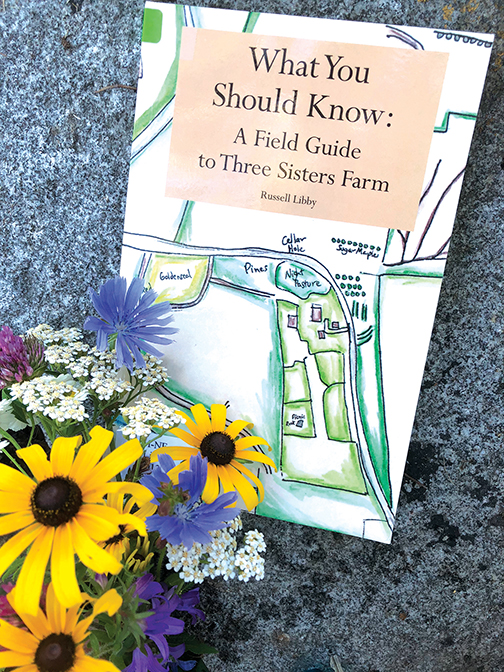Summer. A time to relax, breathe, savor. With our troubled, complicated world and our busy lives, that can be easier said than done.
A most effective and worthwhile remedy: a small, thoughtful book, an easily portable paperback intriguingly titled “What You Should Know: A Field Guide to Three Sisters Farm”. It is in fact a gathering of poems written by Russell Libby of Mount Vernon, Maine and published in 2013, a year after his untimely death.
Libby cultivated his passion for organic farming and small family farmers while working at the nonprofit National Center for Economic Alternatives, and later for the Maine Department of Agriculture, and finally during his 17 remarkable years as the executive director of the renowned Common Ground Country Fair.
This poetry collection affords the reader a personal, colorful and accessible glimpse into Libby’s vast and intimate agricultural knowledge as well as his inner musings, in poems grouped under headings that include “A place to start; the dooryard; the orchard; the woods; the soil; water; a history;” and finally, “a way forward.”
To peruse and ponder these 44 poems is a rare calming experience. Libby’s voice is authentic and grounding as he shares his candid meditations on the 65 beloved acres of organic farmland, forest and streams where he spent more than half of his life with his wife and family. These are the intimate thoughts and words of a man who is thoroughly comfortable and familiar with his chosen universe and his place in it. Throughout this body of work, his words convey his respect and appreciation – whether, as in one poem for rhubarb, or, in another for time- honored tradition such as planting a spruce tree to mark the birth of each child – as well as moments of joy and whimsy.
Other poems express curiosity, share observations, and raise questions and concerns. One example is “Changing Lines,” noting how the wording of the deed to the farm became irrelevant and problematic once the construction of a dam long ago altered the flow of a landmark stream. “The lines are blurred and watery/just like the handwriting /on those very old deeds.”
At the ceremony where he posthumously presented Libby with the Distinguished Service award, Walter E. Whitcomb, commissioner of Maine’s Department of Agriculture, Food and Rural Resources, said: “Russ Libby held a passion for agriculture and our natural resources that he proudly wore on his work clothes, wrote into his poetry, shared both publicly or with anyone who wanted to talk about it and leaves to an inspired generation that has morphed from cottage beginnings to industrial-strength impact. Russ Libby advanced a lifestyle into practically an art…”
How fortunate for us to have the opportunity to sit quietly on a summer’s day in Maine, and appreciate the legacy that Libby graciously left behind, in his Field Guide to Three Sisters Farm.
Comments are not available on this story.
Send questions/comments to the editors.


